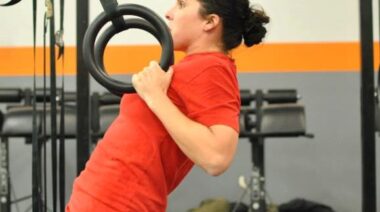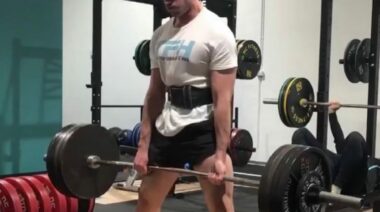Nowhere is grunting more controversial than the sport of tennis, where it is sometimes considered cheating. In a recent Journal of Strength and Conditioning Research study, researchers discovered it’s more than just a distraction.
In a previous article, I reviewed another study that examined the use of grunting in tennis. In that study, the effects of the grunt on serving velocity were examined. The researchers found a modest but significant improvement of 3.8% greater velocities were achieved by grunting. Even further, the increase in velocity wasn’t accompanied by a significant increase in heart rate or other cardiovascular factors. That means grunting makes you a better athlete without making you more tired.
Study Design
Whenever research demonstrates something important, follow-up research is required to explore the details and find out if the results were a fluke or not. In this Journal study, a greater number of variables were looked at, and the subjects varied as well.
32 participants in the Division I and Division II college levels engaged in a warm up followed by six sets of tennis. In random order, half of these sets involved grunting, and the other half did not. Serves and forehand strikes were measured for force and velocity, and the players were hooked up to electrodes to determine muscle activity levels.
Results
In the original study, I noted that the placebo effect was impossible to eliminate in a study like this one. As such, it’s possible that grunting in tennis or other sports only works if you really believe it.
In this study, some of the athletes perceived the grunt as disadvantageous. As such, some of them did not use the grunt prior to this study. However, even for these subjects, grunting made the force of their hits greater, their ball velocity higher, and their muscle activity more pronounced.
There were more studied variables that made no difference on the grunt. Namely, grunting helped improve the hit whether the athlete was male or female. The athletes’ experience levels didn’t make a difference either, nor did the level of competition they had attained. In essence, the grunt in tennis is a primal factor that improves power in anyone.
So let’s talk about how much it actually helped. This study discovered a larger increase in ball velocity than the last one. The force of the hits increased from nineteen to 26 percent. This improvement also translated to a serve velocity that increased by an average of 4.9%. Even better, forehand shot velocity went up by 5.4%. Muscle activity increased as well, which explains the increase in power.
We have confirmation that grunting in tennis does improve power. Not only that, but the researchers also noted that this effect isn’t limited to tennis, and in fact can help other athletes like powerlifters and martial artists as well. So whatever your sport, it might be time to get loud.
References:
1. Dennis O’Connell, et. al., “The Effects of “Grunting” on Serve and Forehand Velocity in Collegiate 1 Tennis Players,” Journal of Strength and Conditioning Research, DOI: 10.1519/JSC.0000000000000604
Photo courtesy of Shutterstock.






